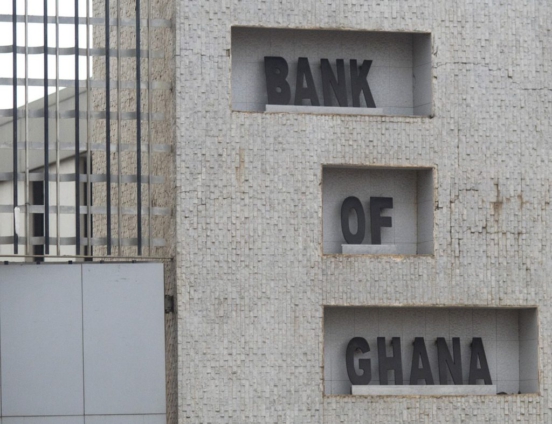The Supreme Court has in a unanimous decision ruled that the Bank of Ghana did no wrong when it opted not to submit directives issued for banks to Parliament.
The court held that concluding that the BOG ought to submit such directives will place the Central Bank under “undue parliamentary oversight thereby upsetting the necessary independence of the Bank”.
This is contained in a July 28, 2021 Judgment delivered by the Apex Court in a case filed by the Association of Finance Houses.
The Bank of Ghana in 2018 issued a directive to Banks indicating it is in line with its powers under Sections 56 and 92 (1) of the Banks and Specialized Deposit-Taking Institutions Act (Act 930).
Section 56 of Act 930 empowers the BOG to prescribe rules regarding any matter of corporate governance in banks, specialized deposit-taking institutions among others.
The provision reads “The Bank of Ghana may prescribe rules regarding any matter of corporate governance of a bank, specialised deposit-taking institution or financial holding company that the Bank of Ghana considers necessary or appropriate to ensure prudent operation, including matters relating to;
(a) the scope and nature of the duties of directors of a bank, specialised deposit-taking institution or financial holding company;
(b) the requirements for audit and other specific committees of the Board;
(c) the responsibilities of key management personnel;
(d) risk management;
(e) internal audit; and
(f) internal controls and compliance
Section 92 on the other hands allows the BOG to issue directives if it is satisfied that it is necessary to secure proper management of such institutions.
“The Bank may issue directives to banks, specialised deposit-taking institutions or financial holding companies generally or to a class or classes of banks, specialised deposit-taking institutions or financial holding companies where the Bank of Ghana is satisfied that;
(a) it is necessary to secure the proper management of a bank, specialised deposit-taking institution or financial holding company generally;
(b) it is necessary to prevent the affairs of banks, specialised deposit-taking institutions or financial holding companies being conducted in a manner detrimental to the interest of depositors and other stakeholders or prejudicial to the interests of the banks or specialised deposit-taking institutions or financial holding companies;
(c) it is necessary to maintain the overall stability of the financial system in the country; or (d) it is necessary to give full effect to the provisions of this Act.”
The BOG issued the directive first in March 2018 and revised it in December 2018. This came shortly after it had carried out a clean-up of the banking sector resulting in the collapse of some indigenous banks.
The BOG argues its December 2018 directive seeks to promote the interest of depositors and other stakeholders by enhancing corporate performance and accountability of the Regulated Financial Institutions.
It provided guidelines for the appointment of Bank heads and handed certain responsibilities to governing boards to ensure effective governance.
The Association of Finance Houses dragged the BOG and the Attorney General to the Supreme Court. The Association says the BOG’s directives are legislative instruments, specifically, rules and regulations within the meaning of Article 11 (1)(c) of the 1992 constitution and therefore ought to have come into effect in accordance with Article 11 (7) of the constitution.
This means it should have been laid in parliament, published in the Gazette on the day it is laid and come into force at the expiration of twenty-one sitting days after being so laid unless Parliament annuls it through a vote of two-thirds of all the members of Parliament.
The Association was represented in court by Legal Practitioner Thaddeus Sory while Ace Anan Ankomah represented the Bank of Ghana.
The AG’s office was represented by Deputy Attorney General Alfred Tuah-Yeboah. The case was heard by Justices V. M. Doste, S.K.Marful Sau (now deceased), A.M.A Dordzie, Mariama Owusu, Gertrude Torkonoo, Prof Mensah-Bonsu and Emmanuel Kulendi.
Mr Sory urged the Court to conclude that the said directive is a rule or regulation and therefore must be sent to parliament. The BOG disagreed. Its lawyer, Ace Ankomah argued that if a body exercises an “Executive Act” it cannot be required to go through the parliamentary process.
He explained that a legislative power is used to lay down the law for people in general whereas administrative power lays down the law for application in some particular situation.
The Supreme Court upheld Mr Ankomah’s position ruling that it could not have been the intention of the framers of Ghana’s constitution to subject the BOG’s regulatory work to the constant supervision of parliament.
It, therefore, concluded that the directives in question did not require such parliamentary procedure to come into force.
See full judgment below:
Latest Stories
-
Akufo-Addo commissions 97-km Tema-Mpakadan railway line
27 mins -
Majority requests recall of Parliament
44 mins -
Kanzlsperger and Professor Quartey support WAFA with medical Donation
45 mins -
Gideon Boako donates 10 industrial sewing machines to Yamfo Technical Institute
1 hour -
‘Golden Boy’ Abdul Karim Razak honored at WAFU-B general assembly
1 hour -
Buipewura Jinapor secures Vice Presidential position in National House of Chiefs with record votes
1 hour -
2024 election: I want results to come out like ‘milk and honey’ – Toobu
1 hour -
Ghana’s Henry Bukari hands over chairmanship of ECOWAS Brown Card Council of Bureaux
2 hours -
Residents of Dome-Kwabenya on edge ahead of December elections
2 hours -
Moffy drops new single ‘Wo’, blending culture and modernity
2 hours -
Don’t bring soldiers to polling stations – Martin Kpebu
2 hours -
Ogyeahohuo Yaw Gyebi II retained as President of National House of Chiefs
3 hours -
Embrace ICT to fit in digital world – Ho NYA boss to youth
3 hours -
We don’t want armed soldiers at polling stations – Tanko-Computer
3 hours -
Drama as police corner armed robbers inside locked forex bureau at Lapaz
4 hours

